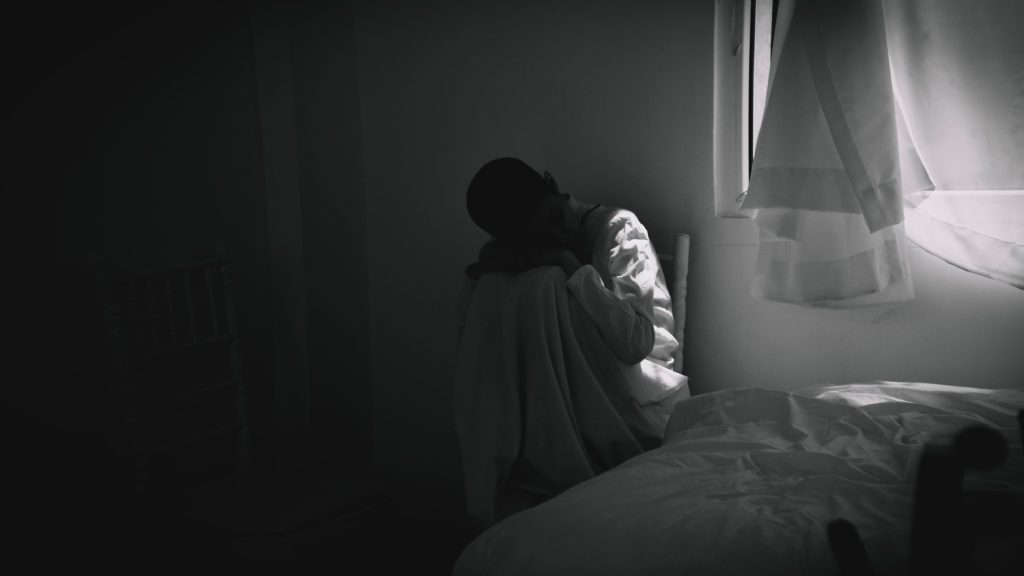Grief wasn’t a large part of my life until I became pregnant. My baby died, and completely changed my life.
Trying to conceive was difficult for my husband and me.
Motherhood felt like a club I couldn’t get into, and I was this outsider trying desperately to get in. We tried naturally for four years and then met with a fertility specialist who told us IVF would be our best choice.
Finding out that we needed assistance with pregnancy caused grief in and of itself, but we didn’t realize it at the time. We had to let go of the life we thought we would live and start dreaming of a new one.
We began IVF treatment right away. Our first transfer got me pregnant, but left us with a miscarriage.
The second transfer gave us a positive pregnancy test, and this is where things started to shift. I developed cholestasis of pregnancy (ICP) in my third trimester. Uncontrollable itching led me to believe something was wrong and ultimately led to our diagnosis.
For the vast majority of cases of ICP, everything is fine. You take medication, monitor your liver, and sometimes the baby is induced to be delivered early.
We were not one of those cases.
I hadn’t felt our baby kick all day, and knew that wasn’t normal, so we went to the hospital. At first, everything felt fine. I wasn’t in pain, and honestly wasn’t worried.
The nurses came in to find a heartbeat, but no one could locate it. I still wasn’t concerned.
When more people came into the room and no one spoke, I started to feel nervous. My husband reached over and grabbed my hand, and realized he felt it too.
And then, all of a sudden, the staff formed a half-circle around us, and we knew. Our baby had died.

Moving From Joy to Grief
I delivered our stillborn daughter, Clementine, at 38 weeks. She looked like her dad and was tall like me. Just like that we went from being expecting parents to bereaved parents.
Grief is awkward. Everyone deals with it in their unique way. My husband and I approached the situation in entirely different manners.
I wanted to cry on the couch while he wanted to paint the house. His reaction hurt my feelings, as I assumed he was doing it wrong. Someone dies and you cry with your loved ones. That’s the routine.
Here’s the thing though — there isn’t a handbook for this, and no one knows how to grieve their deceased daughter.
We had to have uncomfortable conversations, and create a space where we could make mistakes without judgment from each other. He told me that working on the house was his version of grieving, and I was able to see this as his way of processing.
Both of our reactions were acceptable, and neither meant one person loved Clementine more than the other. It was then that I realized that everyone’s response to their grief was valid.
The ebb and flow of suffering is a lifelong journey, and it can often be surprising. A grief counselor we worked with gave us permission to feel anything and everything that comes along.
I didn’t want to leave the house, and she validated me while encouraging me to go to the mailbox daily. I told her the grocery store made me cry, and she informed me it’s a common trigger.
I asked her how I would answer the dreaded question, “Do you have kids?” She noted that my response would depend on my mood, and that I could lie if I wanted. I had the permission to handle it however I needed.
Knowing that I didn’t have to fall into the ways I’ve seen people grieve on TV or watched family members show their pain was powerful. This grief is mine, and I can choose what to do with it.
Moving That Grief Into The Open
Death fit into a box I had in my mind, and my baby dying was not a part of that. Navigating this new reality was scary, unknown, and seemed to be work that not many were doing around me.
I felt like an outsider again. Technically, I was a mother, but I was in the bereaved mother’s club.
After you deliver your baby, other moms want to know the details of the birth. Not with stillborns.
Whenever people would share their experiences, I would like to share mine as well. I tried it a few times and it completely shut the conversation down. Everyone would stop talking, not know what to say. My story came out like a horror film wrapped in pity.
If I wanted to share my experience, I would have to get comfortable receiving feedback like this.
So I got comfortable talking about the death of my child, and owned the power of doing so.
After your child dies, the world somehow still moves forward. It felt like Clementine never existed for a while. I’m a mother with no baby to show.
So I began talking about her. I shared my favorite things about my pregnancy. I described her features to people that came by to see us.
A Clementine tree grows in our backyard and is a part of our family pictures.
I keep Clementine’s love a part of our world even if she isn’t in it. Keeping this love going is how I get through. It reminds me that she did live and that her life matters.

Moving Forward With and Without Our Daughter
Approaching death with admiration is not always received well. I understand why, as it’s touchy subject.
The grief counselor asked my husband and me if we blamed anyone for the cause of Clementine’s death. We had never discussed this before, and we looked at each other, both shaking our heads.
No. This wasn’t anyone’s fault. There was nothing we could do about Clementine’s death.
Suing wouldn’t bring her back. And blaming myself and my body wouldn’t get her back either.
So the question then became: What can we do with this pain?
We decided to share it. Allowing others to know how we feel and deal with this connects us to more than I ever imagined. Hearing people share their grief creates a particular bond that lasts a lifetime.
An unspoken circle of love forms between those that know death. Knowing that couples have endured the tragedy that we experienced makes the world seem small and comforting.
Grief is awkward, tragic, and beautiful, and I love every aspect I’m able to experience.
I’m a bereaved mother and I am proud of my story.It’s awkward, and painful, but I love it because it’s mine.
